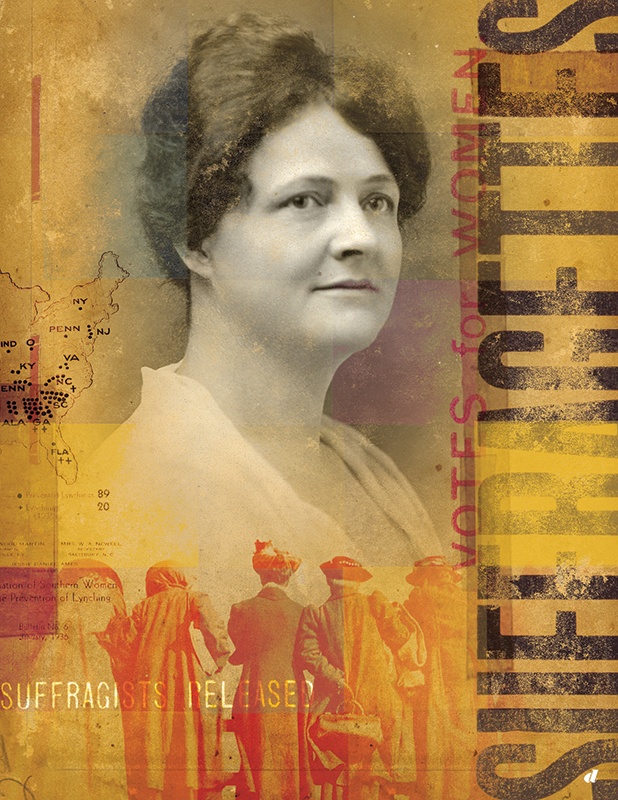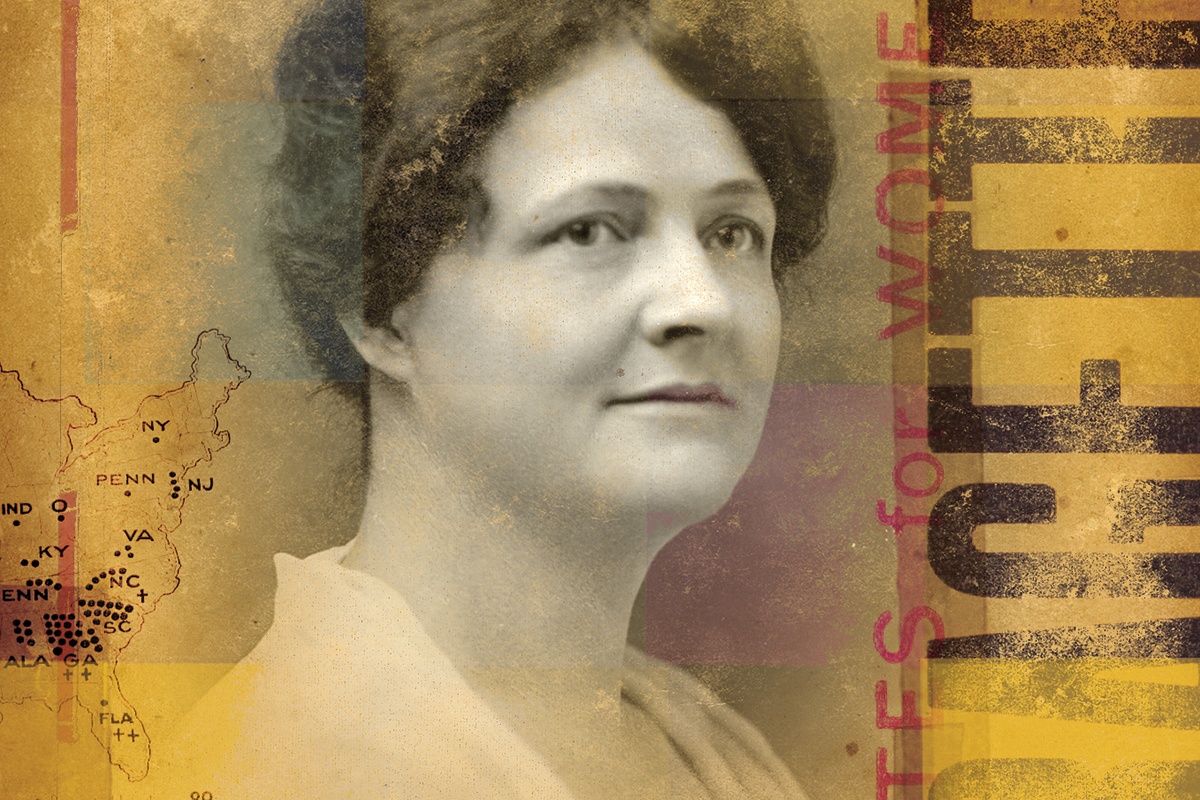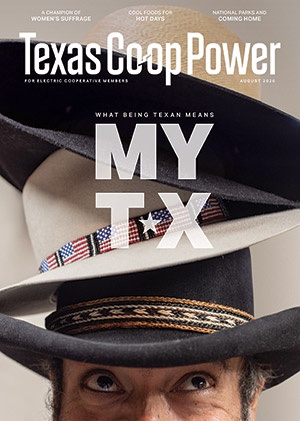During a time when women fought for the right to vote, a widowed mother of three mobilized thousands of women to vote in just 17 days. In a race against the clock, Jessie Daniel Ames employed an unexpected resource to register voters before a critical election that changed the course of Texas history by diminishing the political influence of the Ku Klux Klan.
The Ames family moved from Palestine to Georgetown when Jessie was a child. She led a quiet and dutiful life, graduating from Southwestern University in 1902, a rare accomplishment for a woman at the time.
Ames married a few years after college, but her husband died in Guatemala of malaria in 1914, leaving her a pregnant widow with two children. To support her young family, Ames went to work for her family’s telephone company in Georgetown. Managing a communications business taught her how to succeed in a male-dominated industry, and this success further paved the way for her equal rights activism.

Jessie Daniel Ames
ILLUSTRATION: DAVID VOGIN. AMES PHOTO: JANE Y. MCCALLUM PAPERS | AUSTIN HISTORY CENTER
Ames founded the Georgetown Equal Suffrage League in 1916 and wrote Weekly Suffrage Notes, a column in The Williamson County Sun. By 1918 she became treasurer of the Texas Equal Suffrage Association.
In 1918 the Legislature passed a bill that gave Texas women the right to vote in a primary but gave them only 17 days to register before the election. Using the telephone company to contact voters, Ames and her fellow suffragists registered more than 3,500 women to vote in Williamson County. In just two weeks, they provided voting instructions and staged mock elections to prepare these women for their historic first vote.
This voter registration campaign helped secure the election of anti-klan candidate Dan Moody as Williamson County attorney, and Moody actively prosecuted many klan members. This election victory gave Moody the momentum to get elected Texas attorney general and go on to become governor. Ames continued to register voters by founding the Texas League of Women Voters.
One hundred years ago this month, the 19th Amendment to the U.S. Constitution granted women the right to vote and was ratified August 18, 1920.
Though proud of her suffrage efforts, Ames felt such organizations did not do enough for African American civil rights. She led campaigns against lynching as an atrocious act of racism and set about ending it through work with the Texas Interracial Commission and the Commission on Interracial Cooperation.
She also founded the Association of Southern Women for the Prevention of Lynching, which excluded Black women under the belief that only white women could influence other white women.
After more than 30 years working for social justice, Ames retired quietly. She is buried in Georgetown, a few blocks from the courthouse where she mobilized thousands of women in a movement that confirmed the power of every vote.
Writer Tanya Estes lives in Georgetown.


